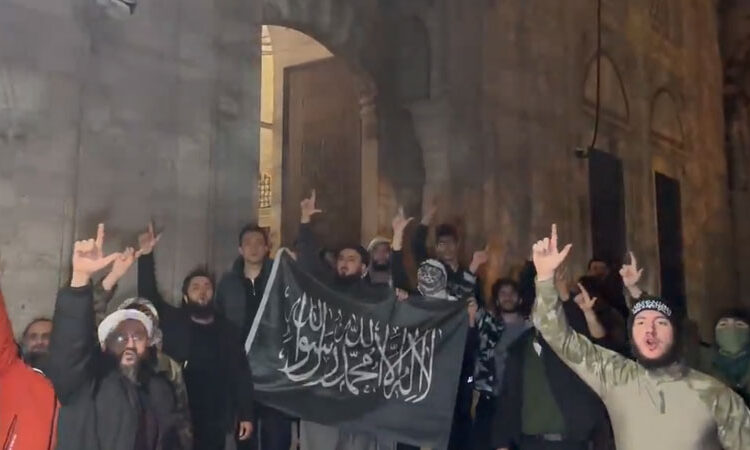Levent Kenez / Stockholm
Mass protests erupted in Istanbul and across Turkey following the arrest of Istanbul Mayor Ekrem İmamoglu, President Recep Tayyip Erdogan’s strongest rival in recent election polls. The demonstrations, which lasted for seven days outside Istanbul City Hall, saw tens of thousands take to the streets, only to be met with violent police crackdowns.
Amid the unrest a long-dormant jihadist organization that has historically enjoyed Erdogan’s tacit support, resurfaced, making threats against protesters. The group falsely claimed that historic cemeteries and mosques had been damaged during the demonstrations, using this as a pretext to mobilize against the secular opposition. Many viewed this as a clear attempt by the government to send a message through the radical organization to intimidate protesters.
On March 24 Mehmet Ali Bayram, leader of the Great East Raiders Association (Büyük Doğu Akıncıları Derneği or BD), which is affiliated with designated terrorist organization the Islamic Great East Raiders Front (İBDA-C), announced an iftar gathering at Şehzadebaşı Mosque. This mosque had previously been the subject of false accusations that protesters had disrespected it, where protesters were falsely accused of desecration. Bayram posted on social media: “The public is aware of the filth that a faction of Islam’s enemies committed at Şehzadebaşı Mosque. Tonight, we will break our fast there to show that such a disgrace will not go unpunished. We invite all devout Muslims to defend our sacred spaces during the holy month of Ramadan.” The association had also spread unfounded allegations that demonstrators consumed alcohol in the mosque courtyard.
Bayram’s inflammatory call was reinforced by Istanbul Governor Davut Gül, a staunch loyalist of the ruling party, who earlier in the day posted photos of two slightly damaged gravestones, claiming, “Attacks on mosques and cemeteries are a provocation against our sacred values. The perpetrators will receive the punishment they deserve.” Despite the lack of evidence of vandalism or targeted attacks, the pro-government media and ruling party officials quickly spread these claims, fueling tensions against opposition protesters.
Mehmet Ali Bayram addressing supporters of İBDA-C gathered in the mosque courtyard.
Bayram later said they would not gather at the mosque after the Turkish interior minister and Istanbul governor personally reached out to them. However, despite this statement, a large number of BD members still assembled at Şehzadebaşı Mosque on March 24. When it became obvious that the protesters had not caused any damage, the crowd dispersed after chanting slogans. Videos later surfaced on social media showing İBDA-C supporters playing soccer inside the mosque with police officers, raising further questions about the support they receive from law enforcement.
Meanwhile, newly surfaced footage in the media showed the Şehzadebaşı Mosque imam expressing support for the group inside the mosque, implying that jihadists had prevailed even in Syria and threatening protesters by saying they would be crushed with an iron fist.
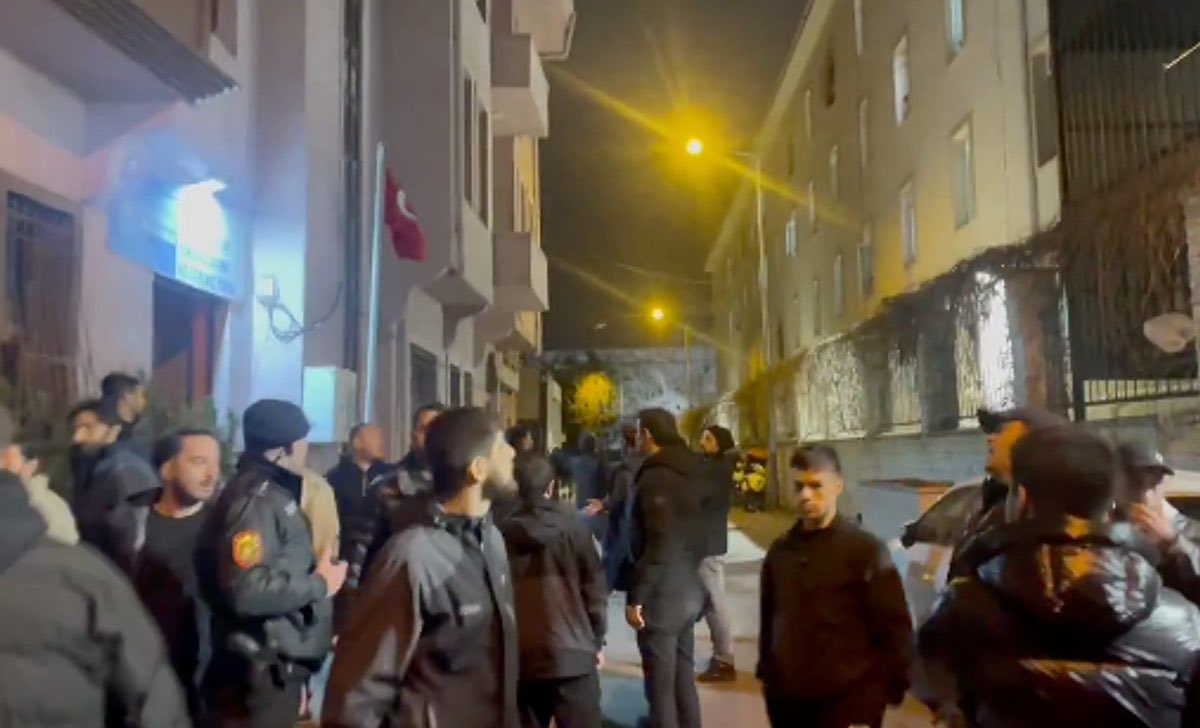
The following day, the BD released a statement saying, “With the conclusion of the protests, it has been proven that this nation will not tolerate disrespect towards its places of worship. We extend our gratitude to all young Muslims who stood with us against those who defile our mosques.”
The association continued to hold small gatherings in the mosque’s courtyard until the final day of protests on March 26, when Bayram delivered a speech to the crowd, declaring, “If there is any further desecration of this mosque, we are ready to sacrifice our lives and take lives if necessary.”
Meanwhile, President Erdogan wasted no time seizing upon the alleged cemetery desecration in his public speeches. Repeatedly referencing the incident, he placed the blame squarely on the main opposition Republican People’s Party (CHP) and its leader, Özgür Özel. On March 26, addressing lawmakers, Erdogan ominously warned, “Hear me, Özgür Özel, one day someone will prepare your grave just like this, and others will come to destroy it.”
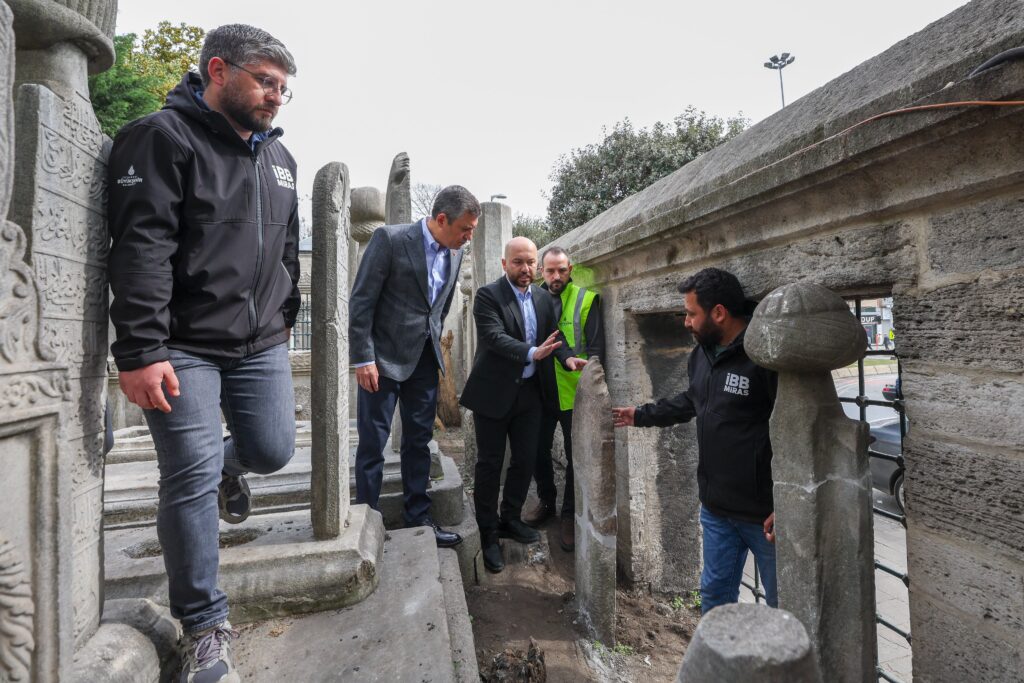
This rhetoric mirrors tactics previously used by Erdogan during the 2013 Gezi Park protests, when he accused demonstrators of consuming alcohol in a mosque and assaulting a veiled woman. These claims, later debunked, were part of a broader effort to discredit the opposition and justify harsh crackdowns.
Although tensions eased after the opposition ended its protests on March 26 around city hall, the government once again reminded the public that there are radical groups ready to deploy in similar situations.
The IBDA-C is a designated terrorist organization, known for its involvement in violent attacks and bombings in Turkey. Under Erdogan’s rule, the group has been given a renewed platform, with its members receiving government protection and even securing positions of influence.
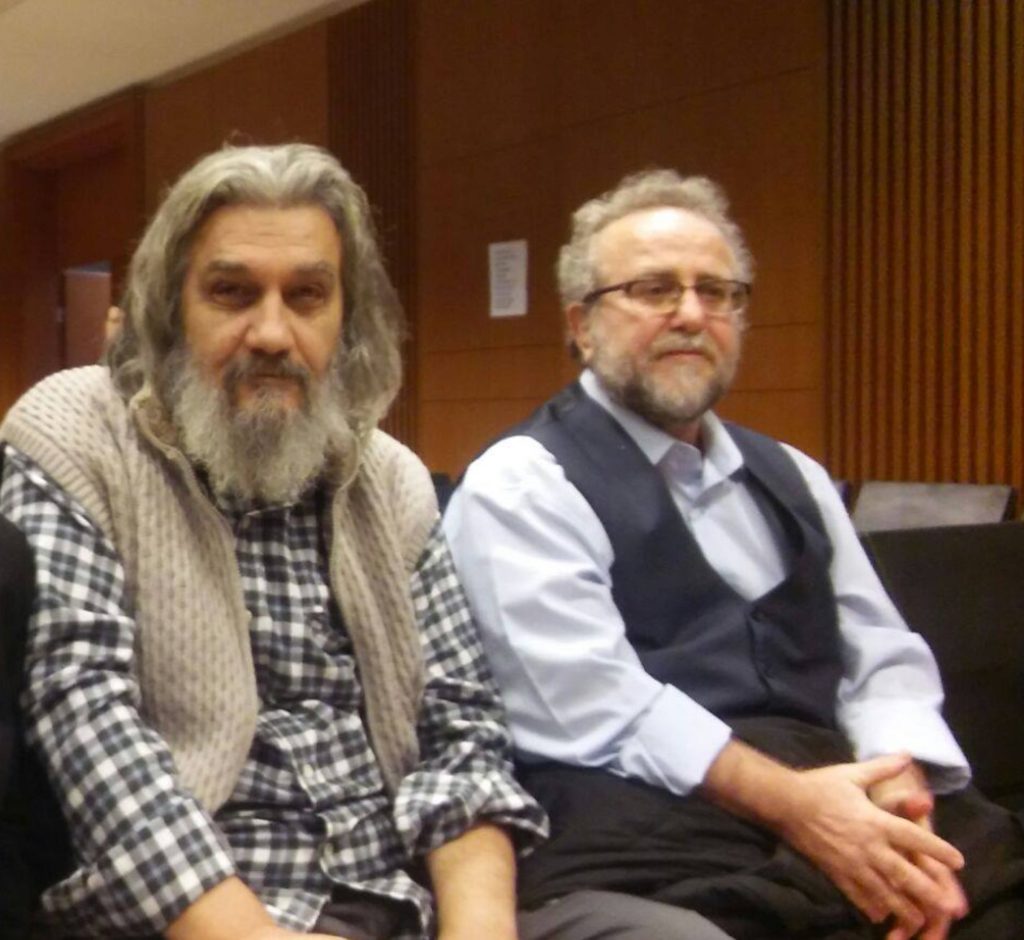
Erdogan has personally overseen the release of IBDA-C militants from prison, including the group’s infamous late leader, Salih İzzet Erdiş (Salih Mirzabeyoglu), who had been serving a life sentence on conviction of terrorism. Mirzabeyoglu was freed in 2014 after a controversial retrial by judges handpicked by Erdogan’s government. Today, figures affiliated with IBDA-C continue to wield influence, with some even securing roles in state institutions.
The group, known for its links to al-Qaeda, was involved in major terrorist attacks, including the 2003 Istanbul bombings that targeted synagogues, the British Consulate General and an HSBC bank, as well as the 2008 attack on the US Consulate General. A 2009 confidential intelligence report revealed that Turkish authorities had detained over 1,186 IBDA-C militants and seized weapons, grenades and explosives in counterterrorism operations.
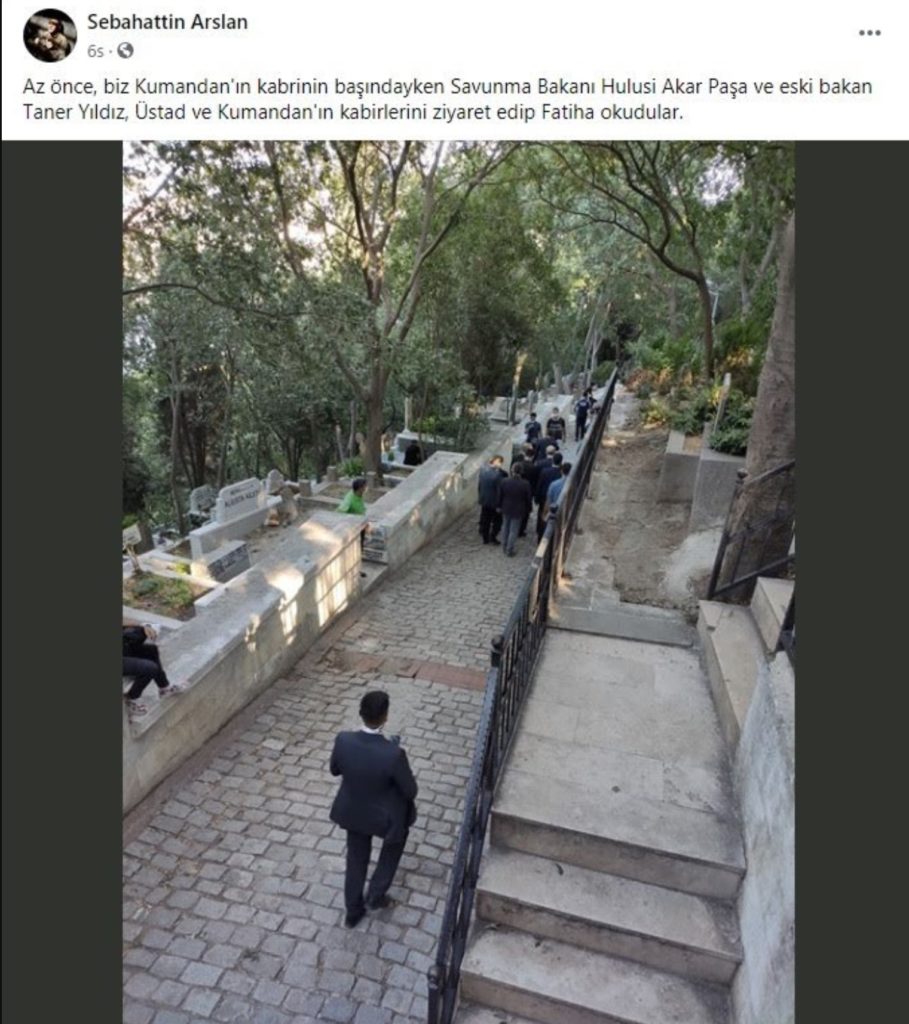
The Erdogan government managed to stop the monitoring of the group in January 2014 when it launched a major shakeup in the Turkish police department, the main law enforcement agency in Turkey, with an unprecedented reshuffling and numerous dismissals. The purge came after the December 2013 corruption investigations that incriminated President Erdogan, his family members and his business and political associates in an Iran sanctions-busting scheme.
IBDA-C’s networks have since expanded, operating with impunity and reportedly working alongside Turkish intelligence agency MIT to mobilize jihadists domestically and abroad. The organization has played a key role in orchestrating street unrest at critical political junctures, often serving as an informal arm of Erdogan’s government to intimidate opposition figures.
While IBDA-C’s late leader Mirzabeyoglu passed away in 2018, his movement remains deeply embedded in Turkey’s Islamist political landscape. Then-defense minister Hulusi Akar and former energy minister Taner Yıldız visited his grave in 2020, further signaling the group’s enduring influence.

